From Sight and Sound (Autumn 1972). I like the recent second edition of this a lot more — enough to have given it a blurb that’s used in the ads, and not only because Schrader cites me in his new introduction about “slow films”. — J.R.
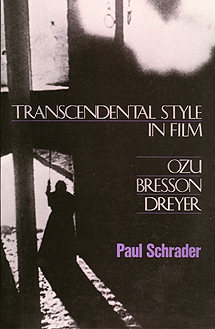
TRANSCENDENTAL STYLE IN FILM: Ozu, Bresson, Dreyer
By Paul Schrader
UNIVERSITY OF CALIFORNIA PRESS, $10.00
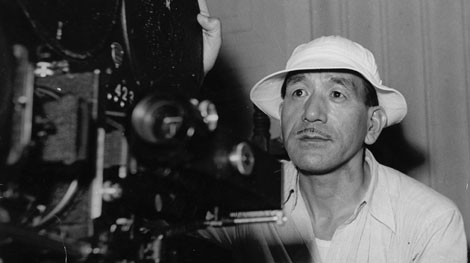
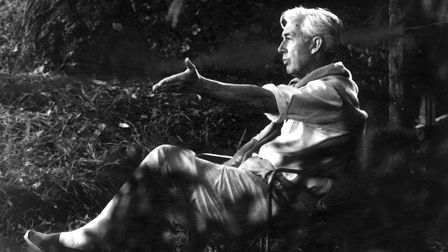
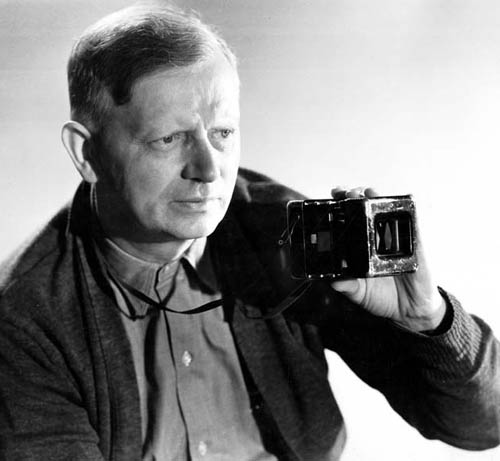
Modesty and caution are not exactly what one expects to find in a book with this title, on these three directors; but ironically, one of the chief limitations of this comparative study is that these qualities often seem to predominate over everything else. The first ‘step’ of transcendental style,for instance, is defined as follows: ‘The everyday: a, meticulous representation of the dull, banal commonplaces of everyday living’ or what [Amédée] Ayfre quotes Jean Bazaine as calling “le quotidien”.’ Not quite a double redundancy, but close enough to make one wonder why this passage and so many comparable ones suggest a critic walking on eggshells.
Although it is nowhere identified as such, Schrader’s extended essay has much of the look, shape and sound of a doctoral dissertation [2013 note: I believe that this was in fact a Masters’ thesis]. 194 footnotes are appended to 169 pages of text, and each step of the argument proceeds like a slow-motion exercise in which every inch of terrain must be defined and tested before it can be touched upon. Read more
From the Chicago Reader (November 13, 1998). It seems like there are some cinephiles around who still regard Dogme 95 as an honest-to-Pete aesthetic position and not as a lucrative business, ignoring that as far back as 2000, official Dogme Certificates were being sold in Denmark for roughly $1,000 apiece — apparently as a adjunct to von Trier’s main form of income, his ongoing porn-film business (which has also been widely ignored). — J.R.
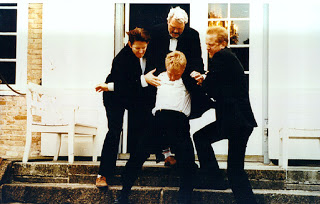
The Celebration
Rating *** A must see
Directed by Thomas Vinterberg
Written by Vinterberg and Mogens Rukov
With Ulrich Thomsen, Henning Moritzen, Thomas Bo Larsen, Paprika Steen, Birthe Neuman, Trine Dyrholm, and Helle Dolleris.
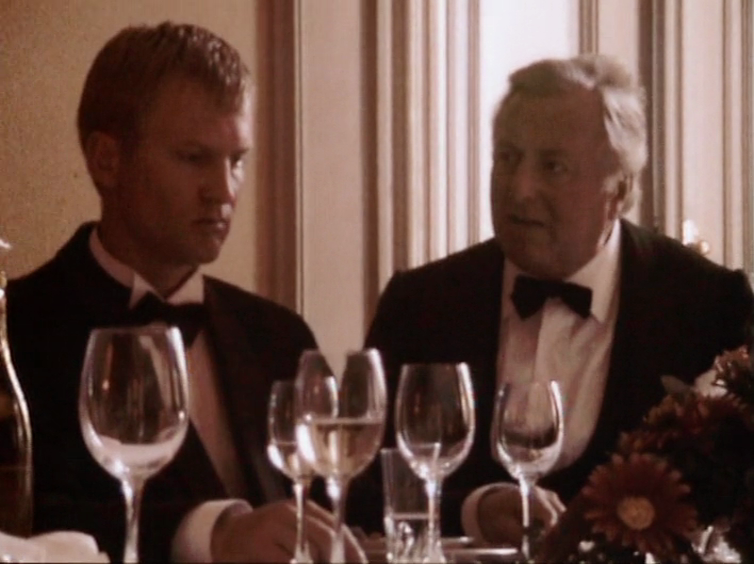
In 1961 we wrote this manifesto of the New American Cinema. Eugene Archer was working for the New York Times then, and I showed it to him and asked him if they could print it. He said, ‘No, we couldn’t — maybe the Village Voice could run it.’ Then I understood, of course, that the only kind of manifesto that the New York Times would print would be a press release, not a manifesto at all. In the same way, for an idea to get into the Village Voice today, it has to become not an idea but something else. Read more
From the Chicago Reader (June 13, 2003). — J.R.
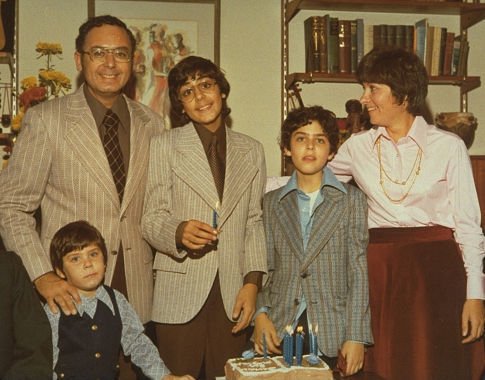
Capturing the Friedmans
**** (Masterpiece)
Directed by Andrew Jarecki.
It’s disconcerting to be appalled and even slightly nauseated by a masterpiece. But Andrew Jarecki’s Capturing the Friedmans is a documentary, and so it’s disconcerting largely because of its subject matter — it shocks us with the truth.
Yet if Capturing the Friedmans were less shapely and less of a masterpiece, I’d find it less troubling. Both times I’ve seen it I’ve felt that by the end practically everyone associated with the film seems tarnished in one way or another: the ostensible subjects (the Friedmans, an upper-middle-class Jewish family in the Long Island town of Great Neck), the members of their community who helped destroy much of their lives, the filmmakers, and the audience. We’re all tainted by the graphic exposure of family wounds, diminished by what we think and feel — and by what we don’t think and don’t feel. Frankly, I’m not sure whether the film deserves to be applauded or attacked for this.
The film’s story, most of which transpires over a dozen years, begins on Thanksgiving in 1987. Arnold Friedman — a highly respected and popular middle-aged schoolteacher who gives piano and computer lessons at home, and who, as Arnito Rey, led a mambo band in the late 40s and early 50s — is arrested for possessing child pornography and subsequently charged with sexually assaulting dozens of his former computer students. Read more







